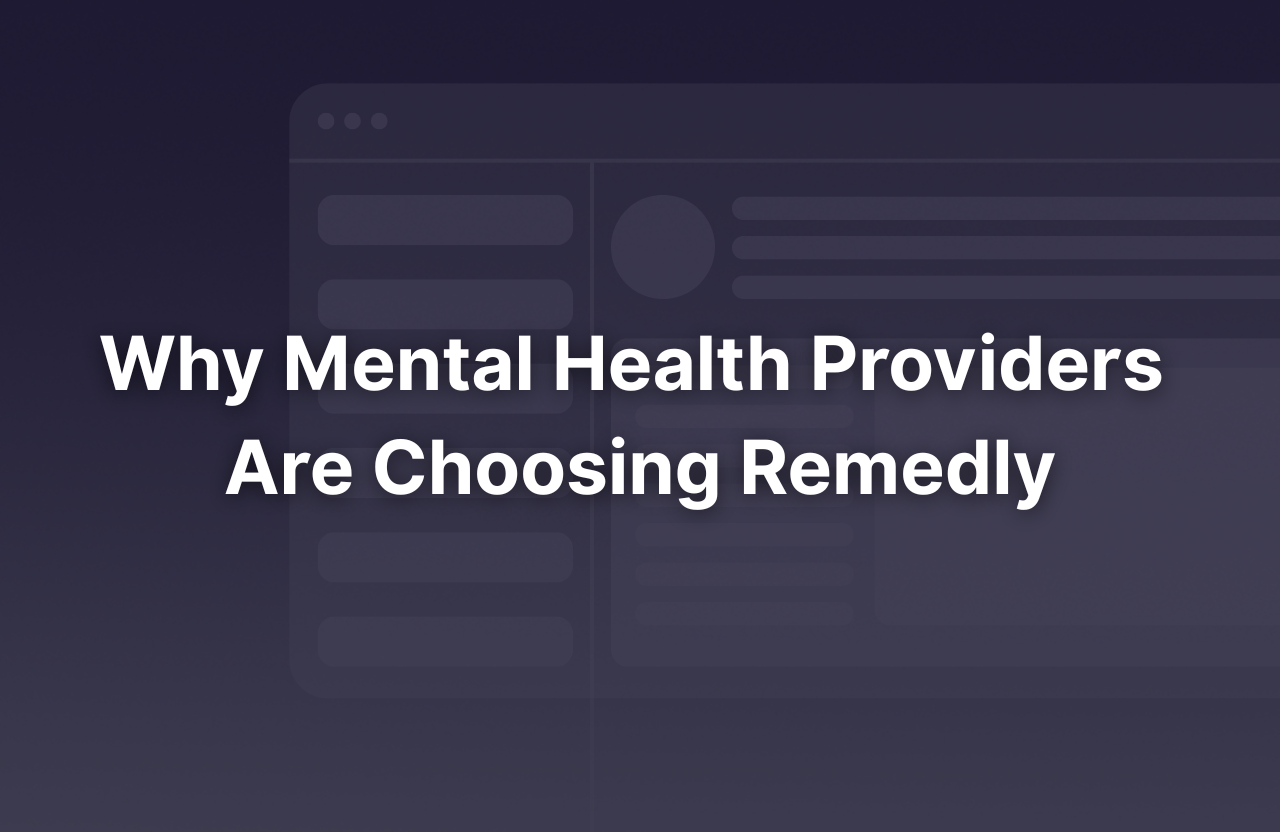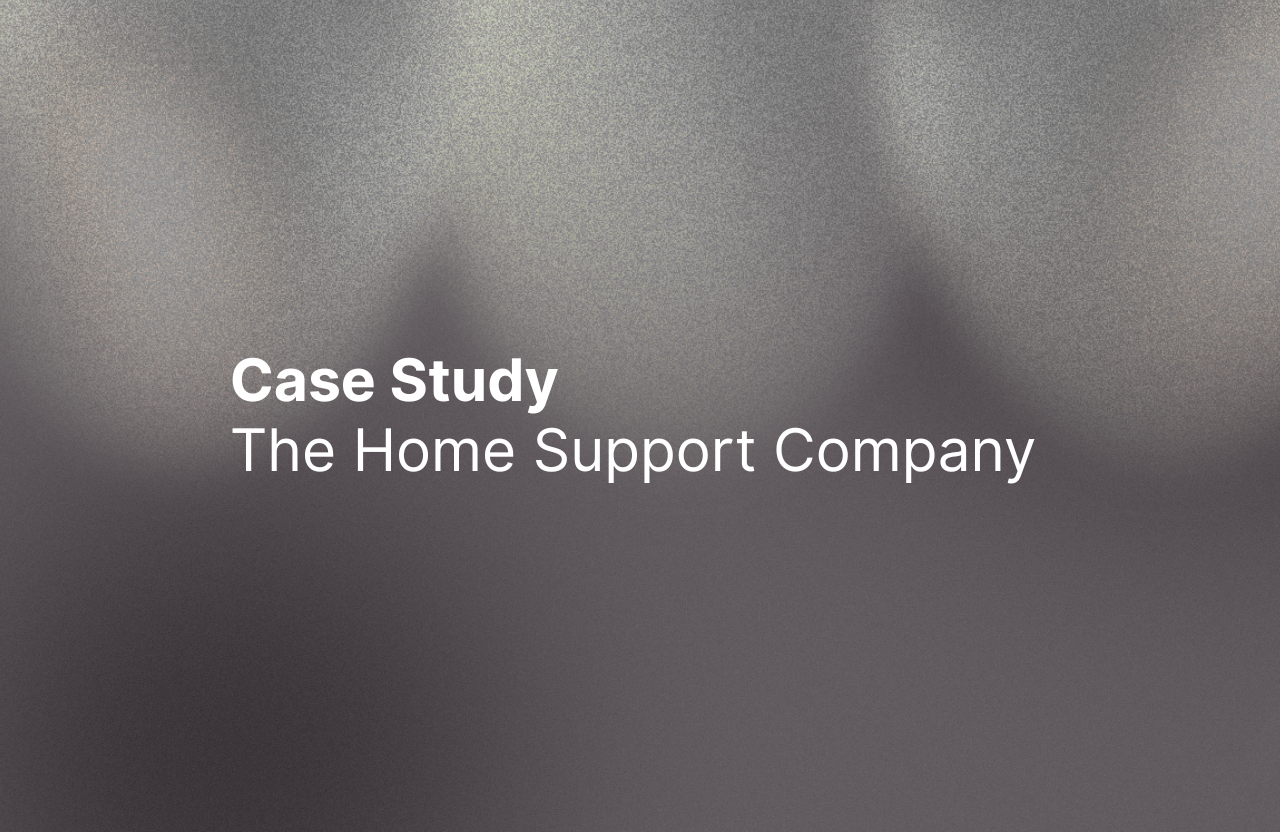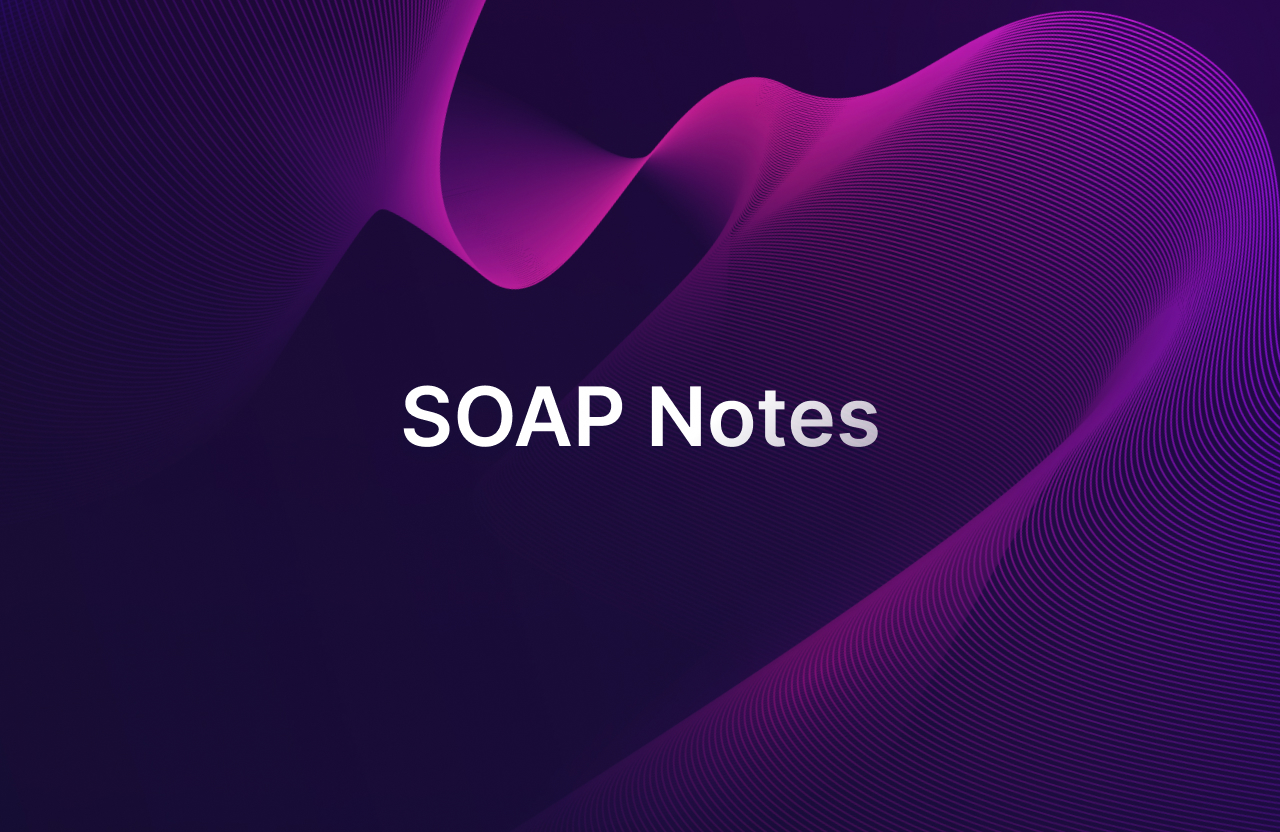- Identify the Types of Services You Provide
- The Basic Medical Practice Solutions
- Electronic Health Record (EHR)
- Practice Management Software
- Revenue Cycle Management (RCM)
- Patient Portal
- Telehealth and Telemedicine
- Integrations
- Identify the Problems the Software Should Solve
- Key Questions to Ask
Table of Contents:
The digital revolution in healthcare is charging full steam ahead, with medical software at the forefront. For instance,
- The U.S. practice management system market, valued at a cool $5.5 billion in 2023, is set to skyrocket at a 9.40% CAGR through 2030.
- EMR/EHR systems adoption has grown from 18% in 2001 to 88% in 2021; the market is expected to rise from $29 billion in 2020 to $47.2 billion by 2027.
- And, telemedicine has grown from a pandemic need to a $21 billion industry by 2022 and is projected to reach $36 billion.
The digital health boom, driven by initiatives like the 2009 American Recovery and Reinvestment Act and the HHS's 2020-2025 Federal Health IT Strategic Plan, is reshaping healthcare, including mental health. Choosing the right software is crucial for growth and quality care.
By the end of this article, finding your perfect match will be a breeze if you follow the following steps:
Identify the Types of Services You Provide
Now that we've set the stage, let's dive into the nitty-gritty of choosing the right mental health software for your practice. First things first: you've got to identify the types of services you provide. Trust us, this step is crucial.
Mental health services include offerings such as individual counseling, psychotherapy, group therapy, family sessions, crisis intervention, support groups, and so on. And just like you wouldn't use a fork to eat soup, you need software that fits your specific menu of services.
For instance, if you're into group therapy, consider software with features that can juggle multiple patient schedules and maintain a smooth flow in group communication. Or, if you're into more specialized treatments, look beyond SOAP and DAP notes for specialized templates like medication management progress notes, treatment plans, and child assessments like Vanderbilt or DSM-5-TR Online Assessment.
The key here is to know your practice inside and out. What services do you offer now? What might you want to add in the future? Understanding your medical practice's current and future service mix is crucial to choosing your software solution. Believe us when we say there's a lot out there. Let’s explore the types available to support the varied requirements of mental health practice.
The Basic Medical Practice Solutions
Understanding the types of mental health practice software available is essential. Some stand-alone tools, including eLabs, ePrescribing, or billing management, excel at specific tasks. Others are more like Swiss Army knives, combining features like Electronic Health Records (EHR) and Practice Management into one powerful package.
No matter the type of software you're looking at, the following key elements are fundamental:
- Types/sets/blocks: These are the main sections of your software, each tackling a specific area of your practice, like Practice Management, RCM, and EHR, among others.
- Features: These are the tools within each type of software that help you get things done, from scheduling appointments to customizing patient notes, automated reminders, remittance reporting, etc.
- Add-ons: These are the extra features you can add when needed for particular client needs, and they usually cost an additional fee.
- Integrations: This includes the different ways to connect your software with other valuable tools. Sometimes, integrations are done seamlessly within your system via API (eFax, ClaimMD) or by embedding (eRx), while other times, by linking to external third-party interfaces (phone calls, virtual appointments).
You are mistaken if you think that's all there is to software functionality. There's much more, and we've barely scratched the surface. Let's break it down in the sections that follow.
Electronic Health Record (EHR)
From basic demographics to detailed medication lists and progress notes, Electronic Health Records (EHR) systems do much more than store patient information — they transform how you deliver care. However, their most significant advantage is how they reduce the risk of medical errors by making health information readily accessible to authorized practitioners.
Some key EHR features that can supercharge your mental health practice include:
- Note Templates: These are pre-structured formats for clinical documentation, like SOAP or DAP notes, assessment forms, and treatment plans, promoting consistency and efficiency.
- Medical Note Customization: This feature allows note tailoring to fit your specific workflow.
- Patient History: Physicians have quick access to patient's records, including past mental health assessments and treatments.
Practice Management Software
Practice Management software is indispensable for the smooth operation of mental health practices. This is possible because of its all-encompassing administrative and billing management functionality. It can also track patient demographics and finances.
Here are some notable features:
- Calendar Scheduling: Practice management simplifies appointment booking, organizes provider schedules, and balances workload. Some systems sync with popular calendar platforms for seamless integration and to reduce scheduling conflicts.
- Patient Appointment Reminders: This automates reminders via email or text, reducing no-shows and improving patient compliance.
- Color-Coded Statuses: Provides visual indicators for quick appointment status tracking at a glance, enhancing organization and prioritization.
Revenue Cycle Management (RCM)
Revenue Cycle Management (RCM) is essential in the financial aspect of your mental health practice. It covers billing optimization and revenue collection for services rendered, thus minimizing claim denials and boosting your bottom line. RCM tools help to manage your practice's finances and optimize them for success, allowing you to focus more on patient care and less on paperwork.
Some game-changing RCM features include:
- Eligibility Verification: This lets you check patient eligibility before appointments, ensuring accurate demographic and insurance data. Real-time eligibility checks help prevent coverage surprises and reduce those pesky claim denials.
- Claim Management: From creating and submitting claims to scrubbing, tracking, and managing reimbursements, this feature streamlines your entire billing process.
- Remittance Reporting: This provides you with a detailed statement overview from insurance companies, helping you reconcile payments accurately, plan finances efficiently, spot errors quickly, and generally maintain financial transparency.
Patient Portal
To embrace proper convenience, leverage the Patient Portal technology. This online health management tool offers patients secure access to health records, streamlined appointment scheduling, and efficient provider communication. Remember that some patients don't like to access patient portals, so some systems offer functionality without having to access one.
The key features include:
- Signed Forms: Patients can access and review their signed forms anytime on a single device, reducing staff workload.
- Sign Encounter Notes: Clinicians can electronically sign and authenticate clinical notes and other e-documents, ensuring information integrity and security.
- Online Payments: A secure system for electronic patient payments, streamlining billing processes and updating patient accounts automatically.
Telehealth and Telemedicine
Like other healthcare sectors, telehealth and telemedicine are innovating mental healthcare delivery. These tools expand access to mental health services by breaking down geographical barriers and adapting your practice to the evolving healthcare landscape. While often used interchangeably, there's a subtle distinction between them:
Telemedicine specifically covers physician-provided diagnostic, medical, and treatment services.
Meanwhile, telehealth encompasses a broader range of remote services, such as patient education and therapy adherence support from various healthcare professionals, including nurses, pharmacists, social workers, etc.
Their core features include:
- Individual and Group Video Sessions: The secure video conferencing feature enables remote therapy sessions, offering flexibility and maintaining crucial patient-provider connections.
- Telephone Appointment Mode: This option provides flexibility for patients without internet access to phone call appointments, ensuring care continuity for all.
- Mobile Health (mHealth): A dedicated app allows patients access to personal health information, making it easier to communicate changes via mobile devices, thus enhancing engagement and improving care quality.
Integrations
Integrations are the critical connectors that link your core system with external tools. They can significantly enhance efficiency and patient care quality in your practice through sophisticated and optimized interoperability. Here are some popular integrations to consider:
- ePrescribing: This integration allows the electronic transmission of prescriptions directly to pharmacies. It streamlines medication management, reducing errors and improving communication between healthcare providers, insurers, and pharmacies.
- eFax: With eFax integration, clients have secure and seamless electronic transmission of sensitive patient records between healthcare entities. This improves efficiency and reduces paper waste.
- eLabs: Connecting with laboratory information systems, eLabs integration facilitates electronic test ordering and result retrieval. This streamlines the diagnostic process, enabling faster clinical decisions and improving overall patient care.
Identify the Problems the Software Should Solve
When selecting mental health software, having sound knowledge of your practice's specific challenges is essential. High-quality software solutions must address several common issues that hinder managerial medical practice, such as:
Data Security and Privacy: In times like this, where cyber threats are steadily increasing, protecting patient information is paramount. Look out for HIPAA-compliant software with robust security features like encryption and secure access controls. This not only safeguards patient privacy but also shields your practice from potential legal issues.
Documentation Efficiency: Manual data entry requires a lot of staff time and is prone to errors. To combat this, modern software offers automated documentation alongside customizable templates. This significantly streamlines your workflow and reduces potential errors.
Appointment Management: Last-minute cancellations and no-shows can negatively impact your schedule. However, you can dramatically reduce the likelihood of these occurrences by using software with automated reminders and patient portals. This saves you time and resources, while patient portals keep patients informed of their care schedule.
Billing Complexities: The intricacies of medical billing can cause payment delays and revenue loss. Look for software that automates billing processes, including payment tracking, claim submission, and communication with insurance companies and clearinghouses.
Key Questions to Ask
To optimize your mental health practice for patient care, you must make a deliberate choice among the available options. For your convenience, we have compiled a comprehensive checklist to guide you in selecting a suitable mental health software.
The answers you provide after critical reflection bring you a step closer to setting up your software:
- Consider compliance and security: Is the software HIPAA-compliant?
- User experience: How intuitive and user-friendly is the interface?
- Data management: How convenient is its data migration? Can you reuse content from previous meetings?
- Scheduling and communication: Does it offer automated reminders via email or text messages?
- Documentation: Are there customizable note templates specific to mental health practices?
- Telehealth Capabilities: What remote care options are available?
- Billing and Insurance: Does it offer integrated billing solutions and insurance claim management?
- Integrations: Does it support ePrescriptions, eFax, eLabs, and payment processing?
- Pricing Structure: Will additional fees be required for specific features? How is pricing determined? Is pricing affected by the location, number of physicians, Tax ID, NPI, or other parameters? What is the price for voice calls, bundled appointment reminders, or texts, if any?
- Support and Updates: How accessible and available is customer support? What is the system update schedule, if any?
- Trial Options: Is there a free demo or a trial period to check the software functionality before committing? Is there a refund policy?
In your quest for the ultimate mental health software, prioritize your practice goals. Focus on streamlining operations, improving patient care, and the long-term benefits in terms of costs, time efficiency, and optimum collaboration.


 Back
Back


